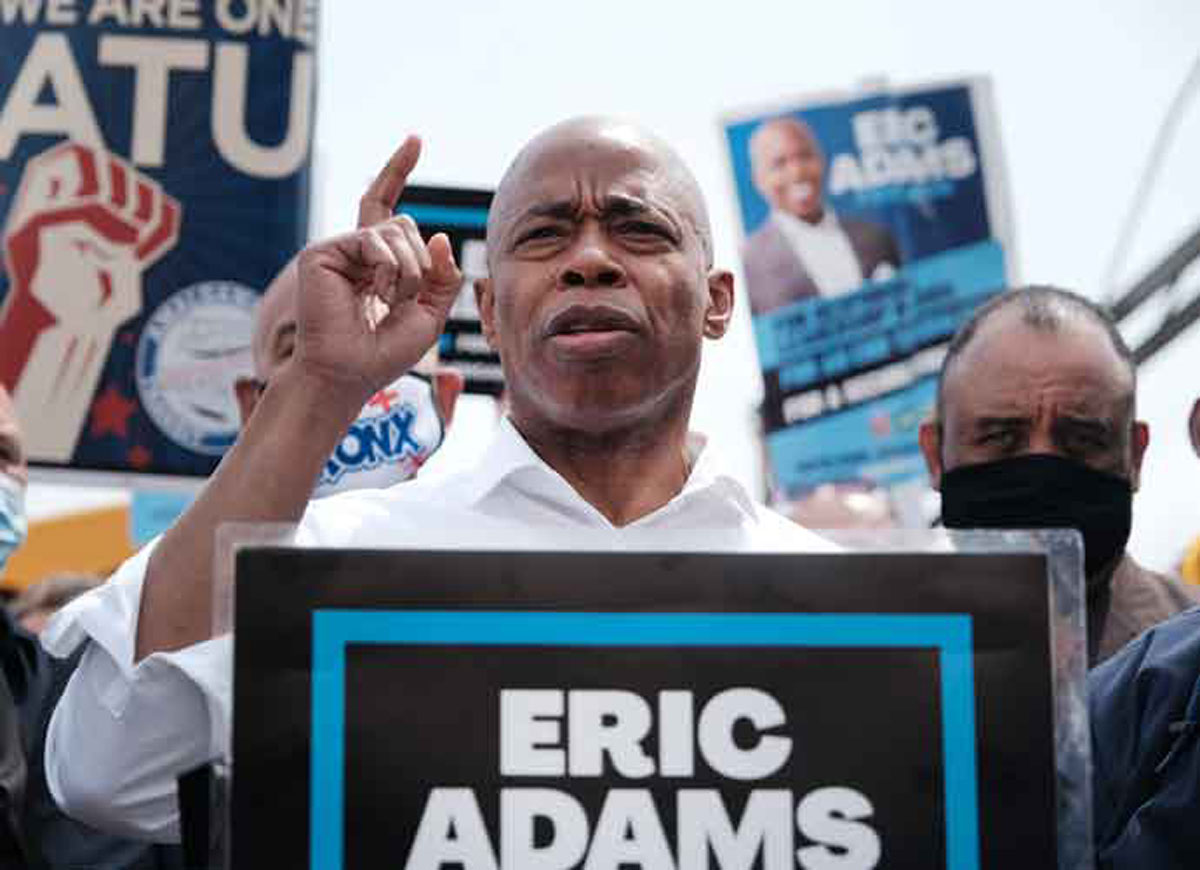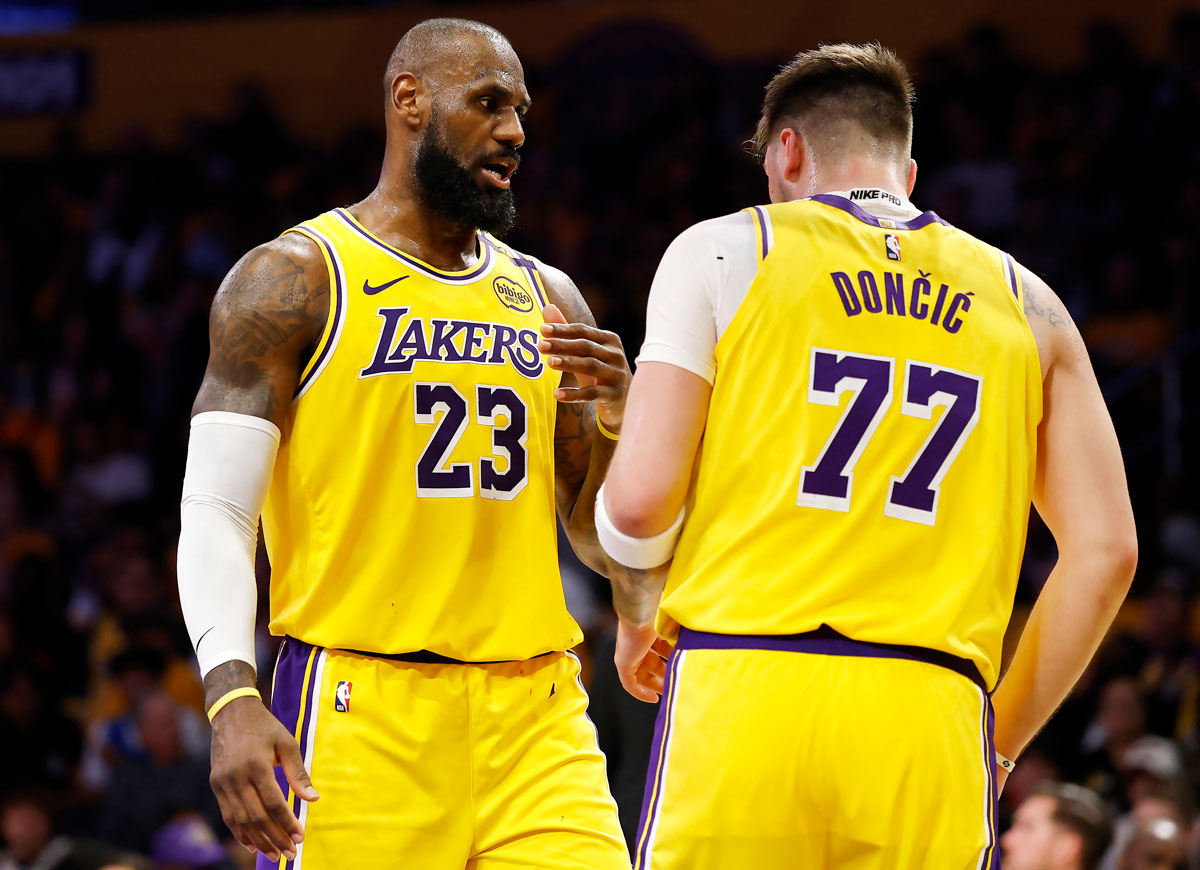Penn Jillette On ‘Tim’s Vermeer’
Penn Jillette produced Tim’s Vermeer, a documentary about his friend Tim Jenison’s quest to recreate “The Music Lesson” by Johannes Vermeer with technology that would’ve been available in the 17th century.
When Jillette had sought out his friend of 25 years for some non-work related conversation, the inventor shared a theory that Jillette felt had to be turned into a movie. “I said, ‘Well you know, Tim, you failed. This does have something to do with work,’” Jillette told Uinterview exclusively. “’Drop everything. We’re going to make a movie of this.’ Well, Tim said, ‘I thought it’d probably be a paper in an art magazine and maybe a YouTube five-minute video.’ And I said, ‘No I think we can do more than that.’”
Jillette, proud of his friend for having completed the arduous task he set before himself, is equally proud of the kind of documentary they made together – a happy one. “This isn’t a complaint, but it’s a fact, most of your documentaries are really depressing,” Jillette mused. “They’re often call-to-action, with a huge amount of sadness, and a huge amount of suffering. We have to get that kind of information, but I was so proud of making a movie that is happy. It’s inspirational.… There’s something wonderful about doing something beautiful.”
Tim’s Vermeer is currently in limited release.
It was really, very odd. Frankly, I've known Tim for 25 years. Very, very close friends, very close. We've gone all around the world together. I had been spending a couple months where I had not had one conversation that wasn't with my family or one that I hadn't been paid for. It was either work or it was my family. I didn't have any conversations with friends - for months. And I called Tim, and when Tim recounts this, he calls it a desperate phone call. It didn't feel that way at the time, but he's probably right. I said Tim I haven't talked to anybody; I've talked to my children, my wife and I've been paid, but no just conversations. So Tim jumped in his plane and flew out to Vegas; he's from Texas. We went out for a big old steak 'cause it's Vegas. I said to Tim, tell me something that can't possibly have anything to do with work - nothing showbiz, nothing I'll ever work on, just talking. And Tim said, "Okay, what do you know about Vermeer?" And I said, "Well I probably know about the first page of Wikipedia. And then Tim reached onto his hip, 'cause he always carrys a camera, pulled it out and showed me some of the video of the father-in-law, the picture that was going to be in the movie. And said, I'm going to be painting a Vermeer in my warehouse in Texas, gonna build a room and paint it. And I said, "Well you know, Tim, you failed. This does have something to do with work. Drop everything. We're going to make a movie of this." Well, Tim said, "I thought it'd probably be a paper in an art magazine and maybe a YouTube five minute video." And I said, "No I think we can do more than that." So, I really spent a lot of time, a few months, trying to pawn it off on somebody. I took Tim to LA, we went around the rounds to all the TV networks you'd expect us to go to. There was a little bit of a problem because it's so earth-shaking. You know, a 350-year mystery solved by a guy in Texas that because of my background - you know doing magic and stuff - a lot of people thought I was f--king with them and maybe we were doing some kind of weird documentary where we were going to try to convince people. Some sort of punk thing. We got somebody pretty close. There's one network that they were talking money. And then finally, I don't know for what reason, we were here in New York doing the pitch, we finished the pitch and went into one of these buildings just like this, went out for a bagel. We're sitting there and I said to Tim, "F--k it, let's just do it." And I know that if a TV network had done it; we know exactly what they would have done. You know exactly what all the beats would've been and it would have been this goofy guy does this, solves this and some dinosaur of a voiceover guy doing it and that would've been fine, you know? It would have been no work for me. But Tim and I decided to do it ourselves. You have to know more about how Penn & Teller work for this not to seem strange. But after a couple of months of thinking about directors, that's when we went to Teller. It was not our first choice. He wasn't not our first choice. It just wasn't the first thing we were thinking about. Teller knew nothing about it. He just knew I was doing stuff. He knew Tim; he's friends with Tim, but not as close as I am. And, we brought Teller onboard and he loved the idea. Then, the moment Teller came on board, and I went from just kind of pimping it out to producing, it became something I'd like to think is a little richer and more interesting than it would have been had it just been paint by the numbers. Just the fact of it. If you read in the newspaper that some guy had found the process Vermeer may have used to paint Vermeers, you'd be pretty blown away. But seeing every brushstroke, I think that's a little more interesting.
I guess there's no way I can separate that. Sure. I'm really interested in the difference between the process of art and the finished product. In magic, we call that effect and method. Method is fascinating, and the effect is what matters. And, you learn in magic, in very gross, broad ways that you can create pretty amazing final effects with pretty dumbass ways. This is not a case of that, but it does get it very clear what the magic is and what the product is.
[Laughs] Tim calls this the turning point for the whole project. He was sitting with Teller and Teller said to him, "Well, you know if you don't finish this, it's going to be a very different movie." And Tim said, "Well if I don't finish it, there won't be a movie." And Teller said, "Oh, yes there will." And Tim talks about his blood running cold at that moment. He knew that it was out of his hands and Penn & Teller were going to make a movie. There was no stopping us. You better do it. Tim has said over and over... He says it in the movie, but it's not just editing out one moment to have him say this. Tim said over and over it was the hardest thing he'd ever done. And Tim said over and over that if I had not come onboard, had we not started making this movie, that he would have quit very early in the process. You know, it's a very odd kind of documentary. There're two kinds of technology talked about in the movie - one explicitly, one implicitly. The one kind of technology is the 17th century technology that Vermeer may have used to make the painting. But, the other technology is the technology of the 21st century. When you think about it, 15 years ago, this movie would have been impossible - even 10 years ago. This movie is more a product of technology than Avatar. We were able to run, in some cases, nine cameras on each brushstroke. There was not a brushstroke on the canvas that isn't covered by at least three cameras. Now, that kind of storage - I think we had 10 2Terabyte drives of what you would call footage on this movie. You could never do that. That's 10 times Apocalypse Now. Patrick our editor, going through that movie, it's just remarkable. And you know because Tim is a video technician, all those cameras running all the time. As a matter of fact, the scene where he cries, when he's in the room and he finally finishes the painting, he is completely alone. There's no one else in the warehouse. As a matter of fact, in the beginning of that scene you see him setting up the cameras. So, there's this weird quality where Teller put the movie together, but there were days that no one was around but Tim, and nine cameras everywhere as he went through... [laughs] that divining process, with all the dots of paint.
Well, you know... This isn't a complaint, but it's a fact, most of your documentaries are really depressing. They're often call-to-action, with a huge amount of sadness, and a huge amount of suffering. We have to get that kind of information, but I was so proud of making a movie that is happy. It's inspirational. Most everyone I've talked to feels this is just an inspiration to work hard. There's something wonderful about doing something beautiful. And there's something about Tim, for all of his genius - and Tim is certainly an IQ out of this world - and for all his gumption, there's a quality that Tim's kind of a regular guy. There's something wonderful about, in five years, you really stick to something, you work hard and think hard, you can make a f--king Vermeer. [laughs] There's something kind of nice about that.
Really difficult. We'd worked with Hockney - Teller and I - 25 years ago in New York on an educational thing. I didn't even have his phone number but we shook hands, spoke. We called him up, and he had gone through this - that Vermeer had used optics and had been ripped to pieces. He had every bit of the puzzle except actually what optics he used. So we emailed and called up and said to Hockney you know we're doing this movie and Hockney said, 'I don't care about your movie. I don't want to be a part of it and your guy has not come up with the answer. It's as simple as that. But I do like you guys and if you happen to be over in England you can come and see me. I'm a long way from London, where you'll be. And you can bring your guy. And I'll be nice to him, but you can't make a movie. Don't bother." As nice as you could be, as helpful as you could be - without being nice or helpful. We went over there with Tim. It's a really beautiful thing; we weren't allowed to shoot anything so... Hockney starts talking to Tim. About 10 minutes into the conversation, there's that moment that we've all seen in life when someone realizes that they're not playing with kids, that they're like, "Oh, this is the real deal." All the sudden you go, "Oh, oh I am really talking to Dylan. This is really something." And about the time that it was clear to Hockney that Tim had memorized his book, and about the time that it was clear to Hockney that he had read everything about Vermeer in Dutch and Tim started pulling out the device. All of the sudden, Teller said, just as Hockney and Tim are involved in this whole thing, he said, "Can we shoot? Can we shoot some of this for the movie?" Hockney goes, "Yeah," and goes right back to talking to Tim, and Farley, Teller and I just reach into our coats, just [makes noise] and had these little handheld cameras all ready to go. And that's the scene; thats the first time Hockney is seeing it. It's really funny, you see Teller in the mirror, Farley in the mirror. We're all shooting the same angle. The sound is just atrocious. Sony had to bust their asses to fix it up. That sound and trying to color correct it and everything else, because it really is a moment happening. So many documentaries - except for the stunt documentaries - even if you count fraudulent stunt documentaries like SuperSize Me and Fahrenheit 9/11, the Michael Moore movies -documentaries are one step removed from what they're talking about. They're journalistic. And this is not really a stunt video, but it's absolutely a documentary. It really is a document of what happened. We don't start shooting until after Tim is in the bathtub and had the idea - but the whole building of the room, every stroke of the painting, the first meeting with Hockney, the first meeting with Colin, the first meeting with Steadman, the first meeting with Martin Moll. Every one of those, you're seeing the absolute real thing. And not even reality television stuff. We didn't say to Martin Mull, step out there and walk back in. When Martin Mull and me and Tim were walking in, that's what had happened. That's really nutty. If you look at documentaries, it's very hard to find one where the footage is shot with the intention of the movie while the movie is happening and with that many cameras. I also think it is the future. I think it was Cocteau that said, 'Film won't be art until the tools are as cheap as pencil and paper.' We're getting to that point. Obviously it's not as cheap as pencil and paper but for someone who is successful like Tim, he bought two RED cameras, he bought 5 Canons and stuck them up. Just 15 years ago, this would have been the highest budget movie ever made. Because of digital technology, it's just gotten cheap enough.
Well, I don't know. If he's going to do a Carravagio [laughs]. Tim and I, we've been best friends for 25 years. I imagine we'll be best friends till we die. I can't imagine there will be another movie that overlaps perfectly - actually not even perfectly. I don't know if I should say this, but I don't know if I'm the right person to have made this movie with Tim. I don't know if Teller is the right person. What Tim did was beautiful, and fascinating and wonderful. And I think Teller did an amazing job with it. But we're kind of graphed onto it. A couple of magicians from Vegas are not the right ones to make a fine art movie. And I think that's actually part of what's good about it. I don't see myself as... Who knows, Tim might go to Mars! [laughs]
RELATED ARTICLES
Get the most-revealing celebrity conversations with the uInterview podcast!








Leave a comment